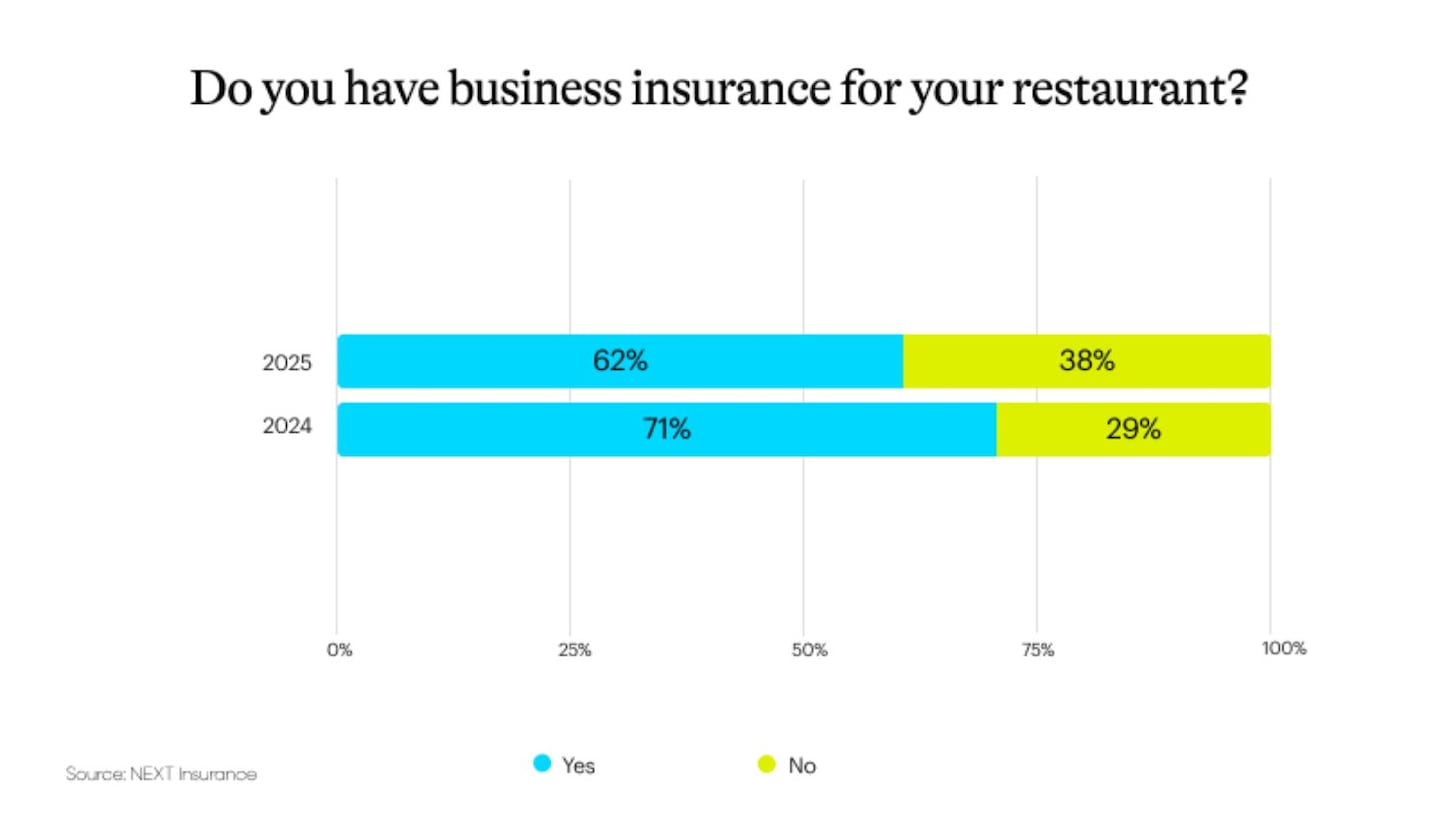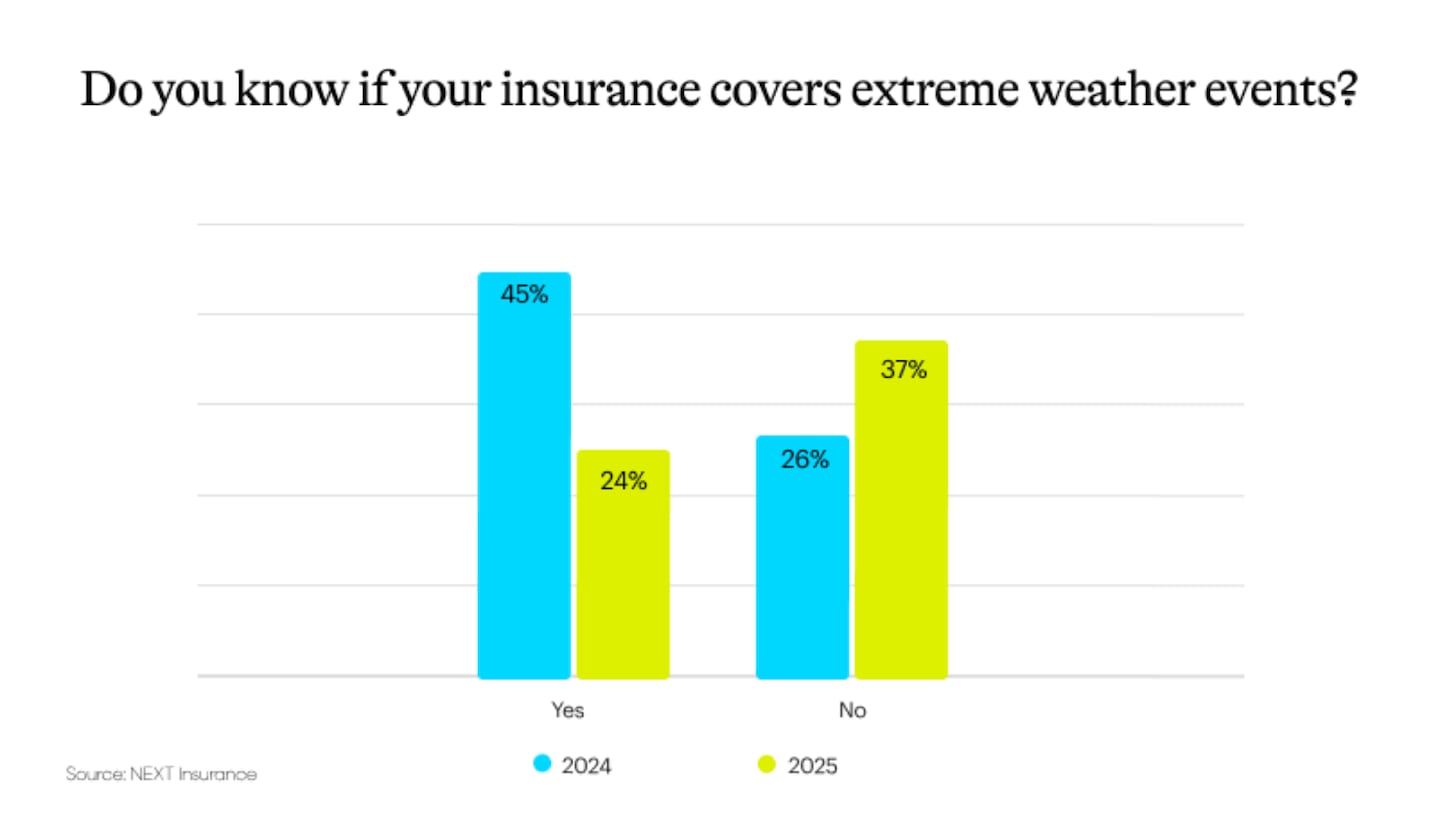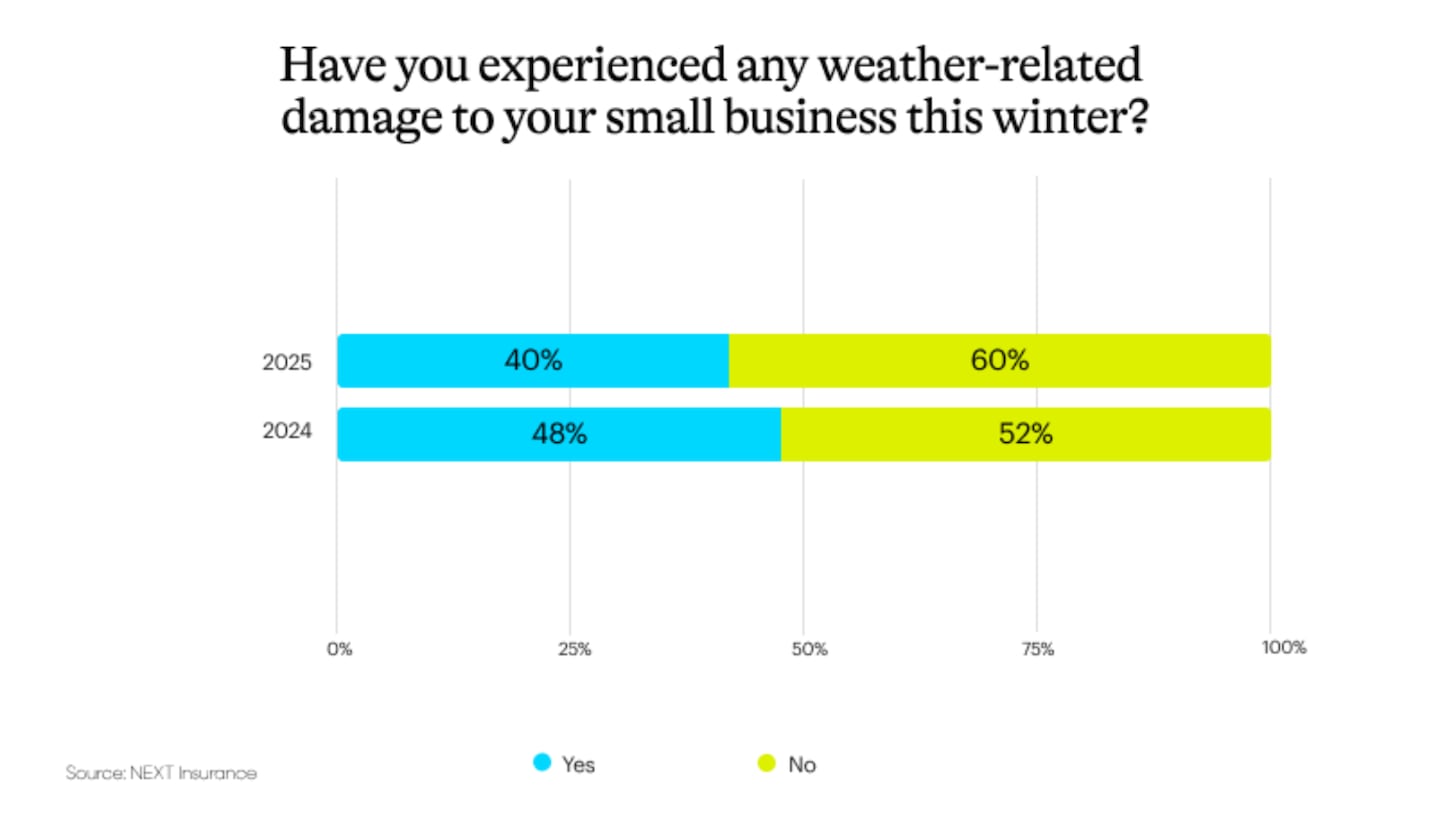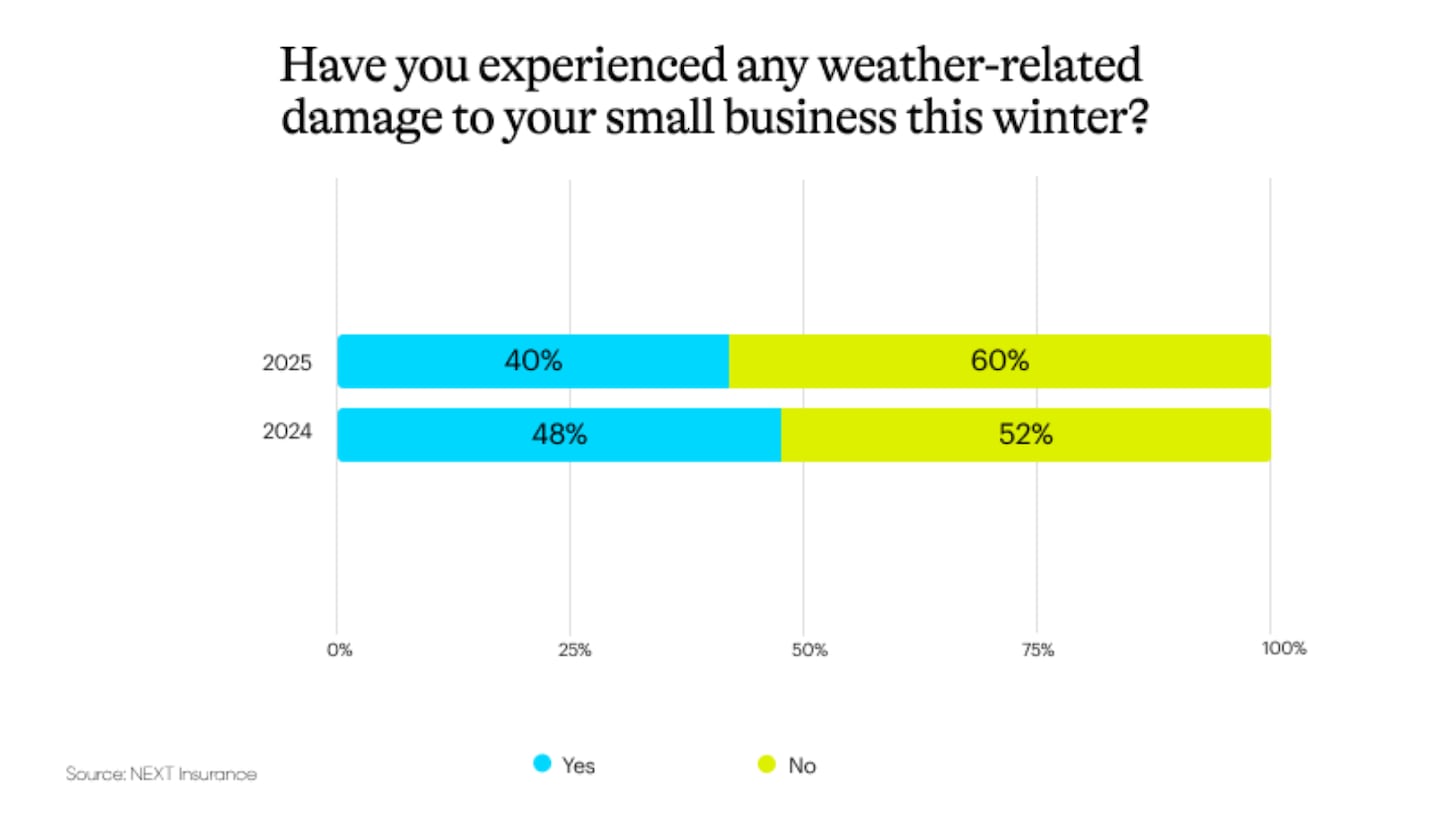Fewer U.S. restaurant owners nationwide have business insurance than they did a year ago, according to a recent NEXT survey. And more restaurant owners don't know if their insurance coverage will cover extreme winter weather, such as storms, snow, hail or ice.
These are just a few of the findings uncovered in the January 2025 survey of 1,500 restaurant owners across the country.
NEXT
Fewer Restaurant Owners Have Business Insurance Compared to Last Year
A growing number of respondents said they don't have business insurance—38% in 2025 compared to 29% last year when NEXT first surveyed restaurant owners.
The significant rise in uninsured food businesses could suggest financial constraints or lack of awareness may prevent restaurant owners from getting coverage, leaving them liable for out-of-pocket costs for repairs themselves.
NEXT
More Food Businesses Are Uncertain About Their Extreme Weather Coverage
In 2025, 37% of respondents feel uncertain about the weather damage their policy covers — up from 26% of respondents last year.
This knowledge gap could translate to more exposure to risks and out-of-pocket expenses if restaurant owners don't have the right coverage.
This lack of confidence in insurance coverage and insurance knowledge is a continuing issue for small business owners. In a previous survey, NEXT uncovered that 90% of small business owners—across industries—aren't confident that they're adequately insured for their business risks.
NEXT
Over Half of Restaurant Owners Question Their Preparation for Winter Weather
Snow damage, water damage and fallen trees are winter risks for restaurant business owners. Business owners' perceptions about how prepared they are to face them remained consistent year-over-year.
45% of respondents (up by 3% from last year) said they feel very prepared for severe weather, compared to 33% who do not feel prepared and 22% who feel somewhat prepared.
Although there is a slight improvement in perceived preparedness from last year, 55% of business owners still feel vulnerable to weather-related damages.
NEXT
So Far, Winter Weather-Related Property Damage Is Down
As of January 2025, 40% percent of restaurant owners report that they've suffered some kind of winter weather-related property damage to their business. This is a drop from 48% who reported property damage at the same time last year.
Why the change? Decreased weather-related damages may reflect improvements in preventative measures, such as better preparedness and resilience strategies.
It could also be a result of milder winter conditions in some regions and fewer severe weather events. According to the National Oceanic and Atmospheric Administration — which tracks disasters with at least $1 billion in damages — this winter has seen 11 severe weather/hail events. Last year, business owners had to deal with 17 severe weather/hail events.
How Business Insurance Can Shield Your Restaurant From Winter Damage
Restaurant insurance can act as a safety net that can help cover repair costs, equipment replacement and lost revenue from weather-related business interruptions. Here are some examples of how restaurant business insurance coverage could help.
- Protection against damages. Business insurance can help cover repair costs for winter-related issues like burst pipes, building damage from heavy snow or customer slip-and-fall injuries from icy surfaces.
- Business continuity. Policies such as business income insurance can help ensure you can recover lost revenue during closures caused by severe weather.
- Financial safeguard. Without adequate coverage, even minor damage or injuries can lead to significant financial setbacks for restaurant owners.
- Tailored coverage options. While commercial property insurance can help protect your physical space, additional policies can be customized to address your business's specific risks.
- Proactive preparation. Reviewing your policy, understanding your coverage and addressing gaps can help make sure your business is ready to reduce cold-weather risks.
This story was produced by NEXT and reviewed and distributed by Stacker.












